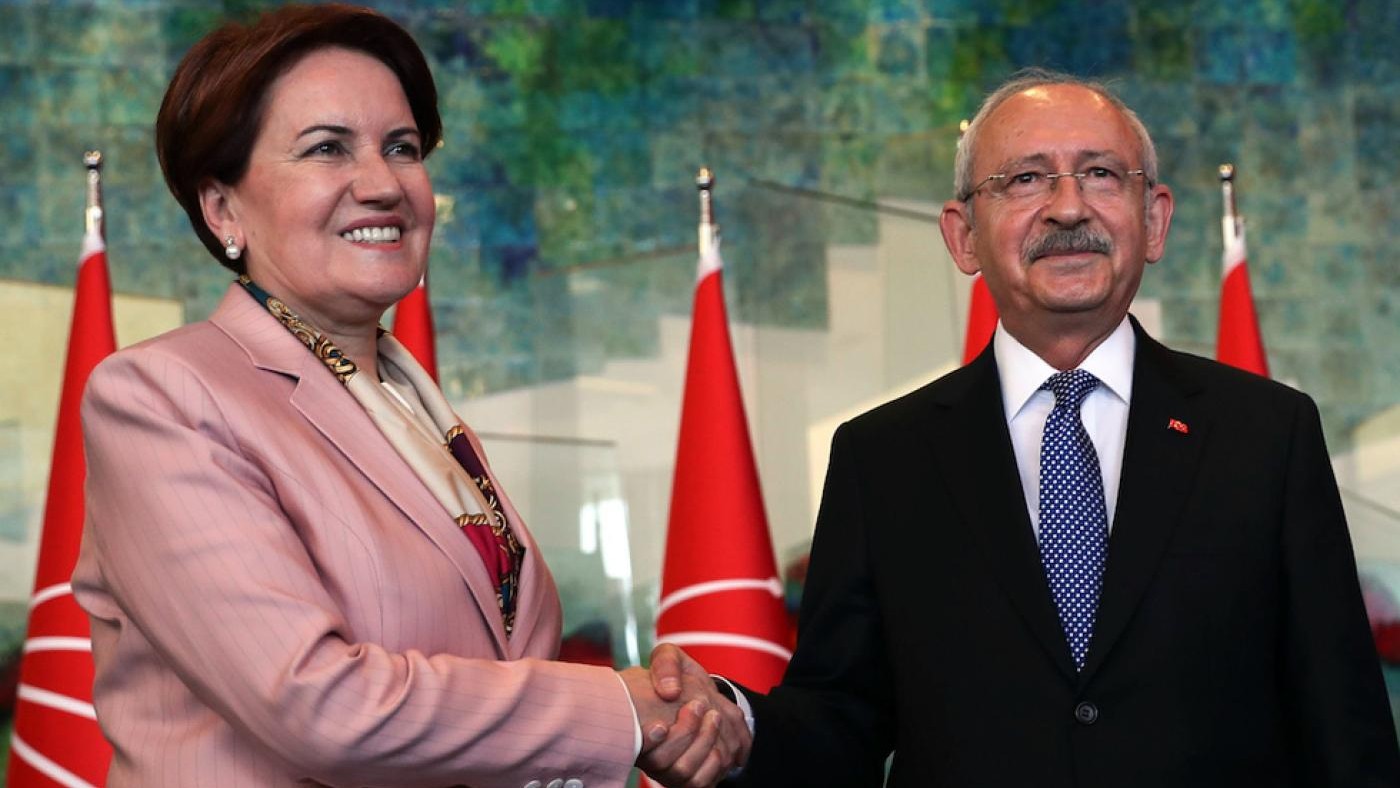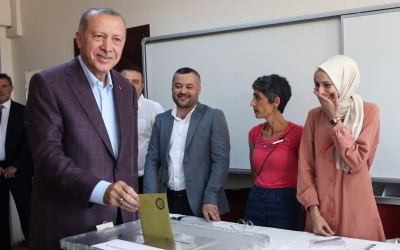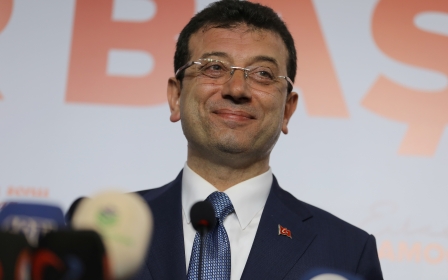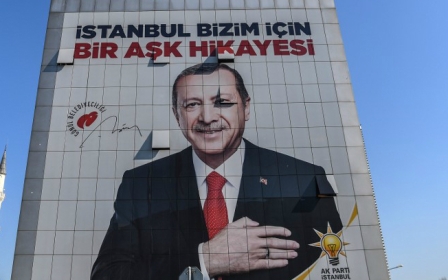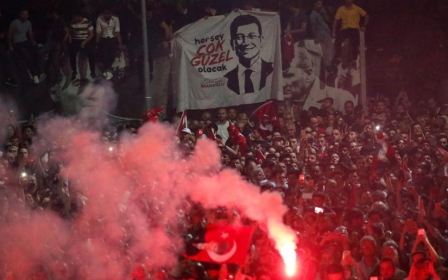The Imamoglu dilemma: What next for Turkey's opposition?
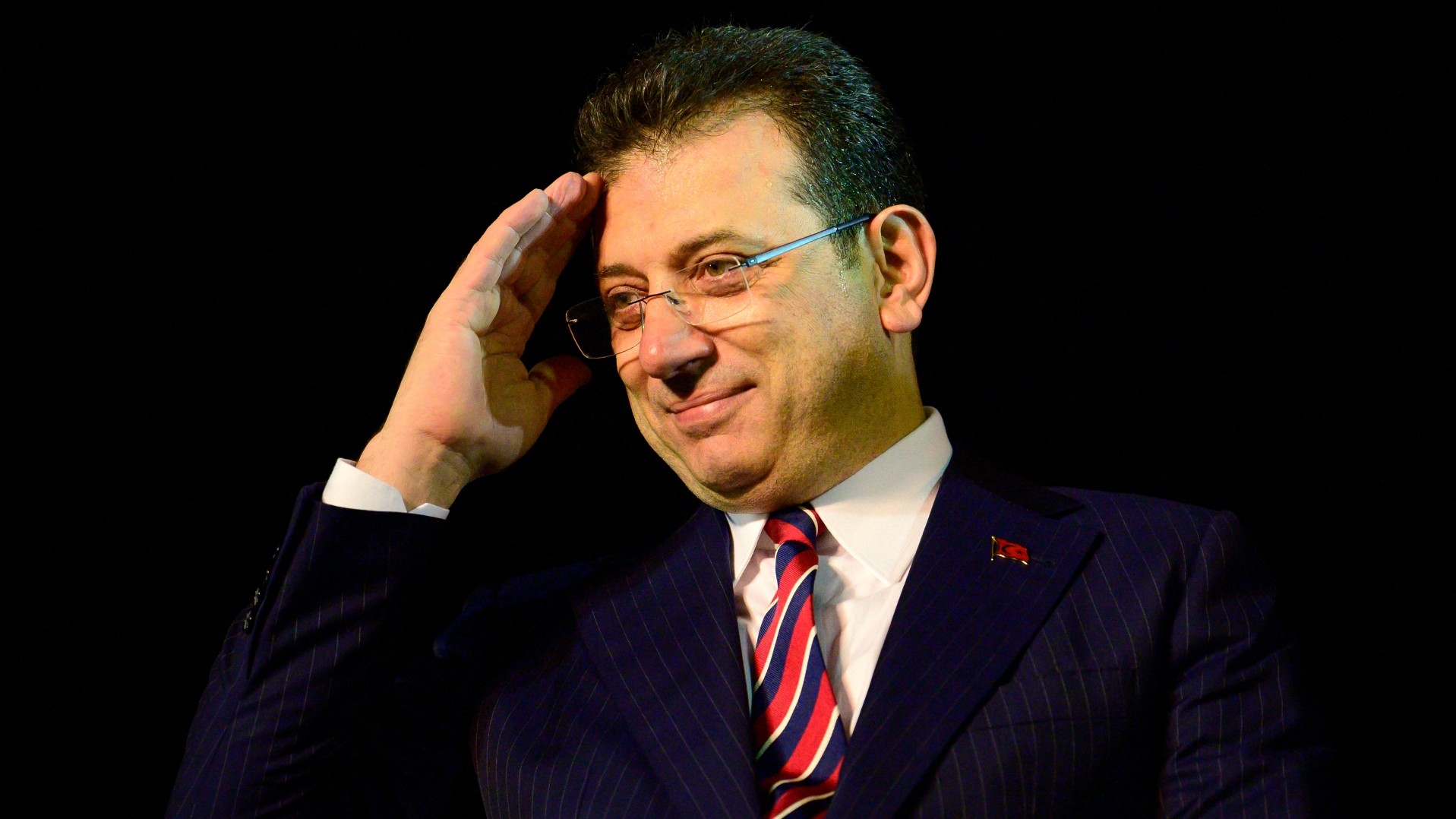
On Wednesday, a Turkish court sentenced Istanbul’s popular mayor, Ekrem Imamoglu, to more than two years in jail and banned him from politics over remarks he made after the mayoral elections in 2019.
Imamoglu emerged victorious from that battle, with claims about voting irregularities by the ruling Justice and Development Party (AKP) forcing a repeat race that saw him win a landslide victory, breaking a 35-year record. "Those who cancelled the 31 March election are idiots," Imamoglu told reporters at the time.
The Imamoglu verdict has re-energised the opposition and provided them an opportunity to rally their base beyond their traditional voters
The jail sentence appears unjust since, according to three renowned law professors, insulting electoral officials by calling them "idiots" is not a legal offence.
Imamoglu was actually responding to Interior Minister Suleyman Soylu, who used the same language against him for visiting the European Parliament in 2019, where Imamoglu criticised Turkish government practices during local elections. Imamoglu was only firing back by saying that the real fools were the ones who annulled the Istanbul mayoral elections.
But regardless of the legal proceedings, whether the verdict is eventually repealed or not, the move is likely to have unexpected implications for the opposition and the upcoming 2023 presidential election.
Ironically, back in 1998, a Turkish court issued a similar verdict against Recep Tayyip Erdogan, then the mayor of Istanbul, for inciting the public with a poem, which effectively victimised him and made him a star politician who had a story to tell - and a past powerful enough to challenge the state hierarchy and the then-corrupt status quo.
The court’s latest judgement cements the perception that Imamoglu is the victim of state injustice. And the Turkish public admires the underdog.
The consequences
Why is this important? Firstly, Imamoglu’s brand had been tarnished due to a series of mishaps, such as the mayor always being somewhere on vacation when snow storms or floods hit the city, or his outreach to pro-government reporters in all-expenses-paid trips to other cities.
He has struggled to improve city services, partly due to the government preventing him from taking loans, and has been accused of being too close to some Erdogan-linked businessmen. Yet the sentence against him has given him a new push, rallying his mostly young base on social media, which influences public debates in Turkey.
Secondly, intra-opposition negotiations to select a presidential candidate to challenge Erdogan in the next elections - which were likely to disqualify Imamoglu for the aforementioned reasons - are now upended.
The main opposition leader, Kemal Kilicdaroglu, head of the Republican People's Party (CHP), aims to be the candidate, and the remaining six opposition leaders in the negotiation process came close to sealing the deal. But Meral Aksener, leader of the nationalist IYI Party, still opposes the agreement.
Even before Imamoglu's verdict came down, Aksener had already given signals that intra-opposition negotiations could be derailed. For example, she has expressed discontent towards the CHP's handling of the selection process, and does not seem to believe that Kilicdaroglu could win against Erdogan.
After the verdict, she showed up in Istanbul and addressed the crowds side-by-side with Imamoglu, promising that "the mayor's song won't be cut short" - an obvious reference to Erdogan, who uses this analogy to describe his journey from Istanbul to the presidency.
Major risks
Kilicdaroglu, on the other hand, was caught off guard, because he was in Berlin for an unnecessary trip as the court handed down its verdict. His latest visits to the US, UK and other places were not very well thought out, making him look politically weak. He had to rush back to Istanbul late on Wednesday night, but his statements so far haven't been very impressive.
This latest court decision may present Imamoglu as the strongest possible candidate for the presidential nomination
Imamoglu's standing in the polls against Erdogan is far better than Kilicdaroglu's. This latest court decision may present him as the strongest possible candidate for the presidential nomination. Some analysts, along with Aksener, have said that former prime minister Ahmet Davutoglu, now the leader of the Future Party (Gelecek), is also close to backing Imamoglu as the opposition's presidential candidate.
However, there are major risks for Imamoglu's candidacy. He will first need to appeal the court decision to the Regional Courts of Appeal, and if the verdict isn't in his favour, he will follow it up in the Court of Cassation. In a regular setting, this would take at least one to two years. But the political machinations in Ankara could easily expedite the process, and a final verdict could be issued before the elections in June 2023.
It isn't clear whether this is a risk the opposition would like to take, since Imamoglu could be registered as their presidential candidate but then struck off by a court verdict just before the elections. This could effectively leave the opposition without a candidate, since he would be immediately barred from politics.
This could force the opposition alliance to back Kilicdaroglu as their presidential candidate, or it could unravel the opposition's coalition. There are several options they could consider, including running their own individual candidates, rather than throwing their support behind a unity candidate.
A win for Erdogan?
While Erdogan has yet to comment on the Imamoglu verdict, I have heard from people close to him that he is comfortable with the sentence.
If Imamoglu is barred from politics for the next two years, he wouldn't be able to run in the presidential election or in municipal elections scheduled for March 2024. That would be an absolute win for Erdogan, albeit through a judicial coup.
One thing is certain: the Imamoglu verdict has re-energised the opposition and provided them an opportunity to rally their base beyond their traditional voters, since they can now present themselves as the parties facing injustice - the same kind Erdogan faced 20 years ago.
There are more than six months until the election, but no one can make a strong forecast about its results. I always underline the fact that Turkish politics is very fluid, and Byzantine games are part of the local culture: backstabbing, judicial coups, bureaucratic machinations to derail campaigns, and leaking operations to undercut rivals are all normal.
And we have just started. We will see more of this in the days ahead, and people will have to think more creatively about how to win a consequential election in Turkey.
The views expressed in this article belong to the author and do not necessarily reflect the editorial policy of Middle East Eye.
Middle East Eye propose une couverture et une analyse indépendantes et incomparables du Moyen-Orient, de l’Afrique du Nord et d’autres régions du monde. Pour en savoir plus sur la reprise de ce contenu et les frais qui s’appliquent, veuillez remplir ce formulaire [en anglais]. Pour en savoir plus sur MEE, cliquez ici [en anglais].




